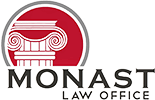
Remote Employees Rights: Our Ohio Workers' Compensation Lawyer Defends Your Benefits
Many remote staff members fear they might not have the same rights as their in-office counterparts when it comes to workplace injuries or illnesses. At Monast Law Office, we understand these concerns—and want to reassure you that yes, in most cases, you have a right to pursue workers’ compensation benefits if you were injured or suffered an illness in the course of your job duties.
Whether you've suffered a fall during your workday or developed a chronic condition due to your home office setup, we strive to reduce the red tape and confusion so you can focus on recovery without worry.
What the Law States
In July 2022, Ohio’s workers’ compensation statute was revised to clarify the specific stipulations for remote employees. It’s important to know upfront that these pose a challenge to your claim.
Workers are barred from receiving compensation for "an injury or disability sustained by an employee who performs the employee's duties in a work area that is located within the employee's home, and that is separate and distinct from the location of the employer"—unless the following conditions are met:
- The injury or disability arose out of the worker's employment.
- A special hazard of the employment activity caused the injury or disability.
- The injury or disability was sustained during an activity undertaken by the employee for the exclusive benefit of the employer.
While it’s natural to be discouraged by these rules initially, let’s look at some examples that may make you eligible for benefits.
Qualifying Circumstances for Remote Workers
Many people working at home are covered, but it is essential to know how your injury or illness might meet the above criteria.
Ergonomic Injuries
Poor home office setups are often the cause of repetitive strain injuries, back problems, or carpal tunnel syndrome. These conditions may be covered if they can be directly linked to your work activities.
Slip and Falls
This could be covered if you experience this type of incident while performing a work-related task in your home office or designated work area. However, the circumstances will be closely examined to ensure the fall was directly related to work activities.
Work-Related Stress or Mental Health Issues
In some cases, mental health conditions that arise from stress or other factors directly tied to your job may be eligible for coverage. This can include anxiety, depression, or other psychological conditions that are a result of your work environment or duties.
Occupational Illnesses
If you develop an illness due to exposure to harmful substances or conditions related to your work—even though you’re away from the typical workplace environment—this could be covered.
Travel-Related Injuries
Traveling employees might have a more challenging time with workers’ compensation claims, but we can help. Whether you’re like a client of ours injured as a flight attendent or take frequent business trips but still work remotely, you have a right to pursue coverage.
Injuries During Work Hours
Generally, injuries that occur during your designated work hours and while performing work-related tasks are eligible. However, each case is evaluated individually based on the specific circumstances.
Illnesses and Injuries That May Not Qualify
Unfortunately, not all injuries at home during work hours are automatically covered. These include, but aren’t limited to:
- Personal activities. For example, if you injure yourself while doing laundry or cooking lunch.
- Home maintenance issues. Tripping over loose carpeting or falling on icy steps may not be covered unless you prove they are directly related to your work activities.
- Preexisting conditions. Rarely are these considered eligible for workers’ comp unless you can demonstrate that the scope of your duties significantly contributed to worsening the condition.
- Off-hours injuries. Anything that happens outside of designated work hours isn’t generally covered, even in your home office space.
- Non-work illnesses. It’s unlikely that you can apply for benefits because of seasonal illnesses unless you can prove they directly result from your work duties.
Ohio Bureau of Workers' Compensation's Scrutiny of Remote Employees
It’s possible the Ohio Bureau of Workers' Compensation (BWC) might examine your remote work claim more closely. At Monast Law Firm, we know exactly how to prepare you to improve the chances of approval. Here’s what we recommend.
- Have detailed documentation. This may include clearly describing your home office setup, regular work hours, and specific job duties.
- Anticipate a causation analysis. A manufacturing or construction claim is relatively more straightforward than what happens in a home office, so understand that the BWC wants clear proof that the injury or illness arose directly from your work activities.
- Provide clear medical evidence. We'll review your medical reports and work with your healthcare providers to ensure all necessary information is included to support your claim.
- Offer comprehensive statements. The BWC might place more emphasis on your own account of the incident, confirmation of your designated work hours, and a supervisor’s job description.
- Expect an inspection. In some cases, the BWC might request to review your home environment to verify the conditions under which you work.
How a Skilled Ohio Workers' Compensation Attorney Can Help
Just because you work remotely doesn’t mean you’re without rights. At Monast Law Office, we’ll partner with you through every step of the process, from initial filing to final resolution. Download our free book, The Worker’s Guide to Injury Compensation in Ohio, and then call us to schedule a free consultation and case review.
And if you’ve already tried to file for benefits you think you deserve as a remote employee and your claim was denied, we want to hear from you. Let us use our experience and dedication to fight for the benefits you're entitled to under Ohio law.

